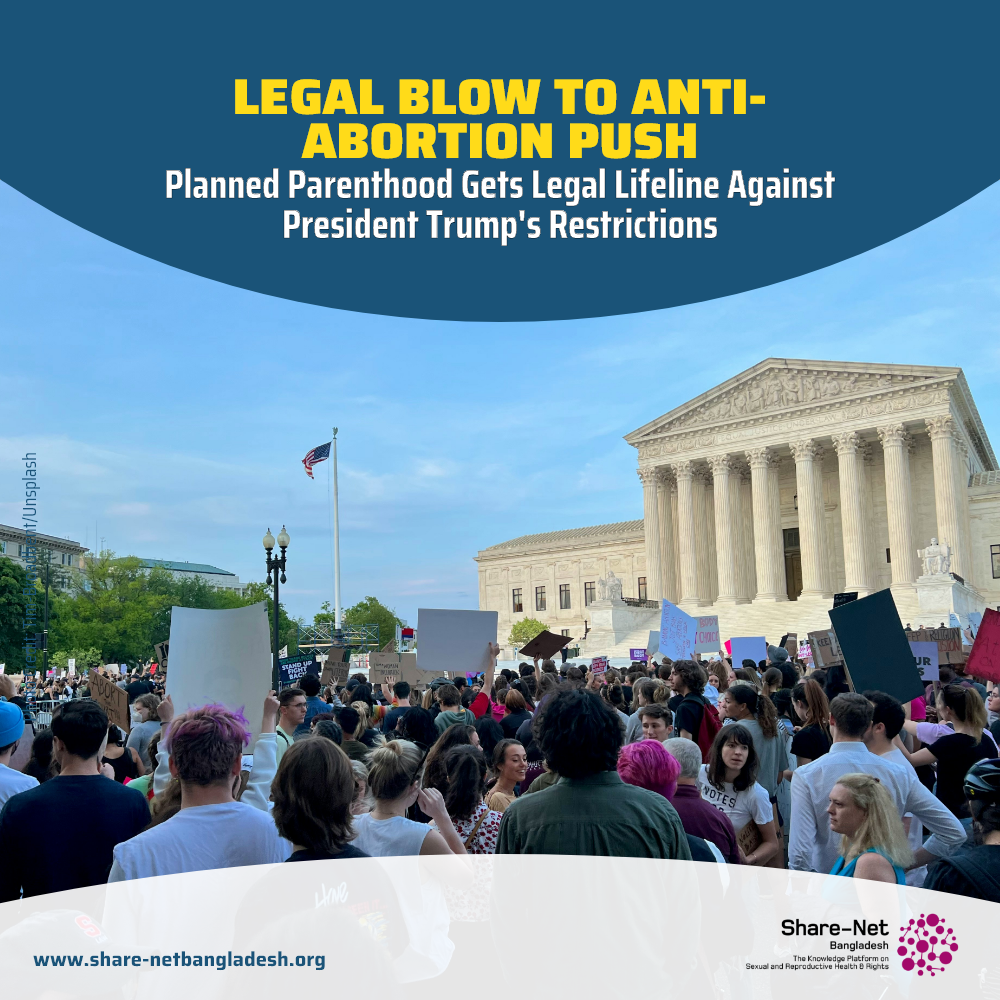Legal Blow to Anti-Abortion Push: Planned Parenthood Gets Legal Lifeline Against President Trump’s Restrictions
US Judge Blocks Trump-Backed Medicaid Cuts to Planned Parenthood, Defends Reproductive Health Rights
In a landmark legal move that reignites the national debate over reproductive health and rights, a U.S. federal judge has blocked a key provision in former President Donald Trump’s recent tax and spending bill that sought to strip Medicaid funding from Planned Parenthood health centers. The ruling is being hailed as a major victory for reproductive rights advocates and signals a renewed battle over access to essential health services for millions of Americans—especially marginalized communities.
On Monday, U.S. District Judge Indira Talwani in Boston issued a preliminary injunction against the enforcement of the provision embedded in the One Big Beautiful Bill Act. The law, passed by the Republican-controlled Congress, denied Medicaid funding to tax-exempt organizations like Planned Parenthood if they continued providing abortion services. The judge found this provision “unconstitutionally singled out” the organization for punishment, effectively violating the U.S. Constitution’s First and Fifth Amendments.
“Plaintiffs are likely to establish that Congress singled them out with punitive intent,” wrote Judge Talwani.
What’s at Stake
Planned Parenthood operates nearly 600 health centers across the U.S., offering birth control, cancer screenings, STI testing, and other critical sexual and reproductive health services (SRHR). The blocked Medicaid cut would have endangered nearly 200 centers in 24 states, with devastating consequences for low-income individuals who depend on Medicaid for care.
“This law would have catastrophic consequences,” said Alexis McGill Johnson, President of Planned Parenthood Federation of America.
SRHR experts warn that defunding Planned Parenthood undercuts access to essential preventive healthcare, disproportionately affecting young people, rural women, and communities of color. According to the Guttmacher Institute, over 60% of women who obtain care from Planned Parenthood rely on public health coverage like Medicaid.
Moreover, Judge Talwani highlighted that the law not only punished those who perform abortions but also those affiliated with organizations that support SRHR, regardless of their direct involvement in abortion services.
Wider Implications and Political Pushback
The ruling, while temporary, reflects a growing judicial check on what many view as politically motivated efforts to weaken reproductive rights. The Department of Justice, under the current administration, had defended the bill by arguing that it aimed to stop “federal subsidies for Big Abortion.”
However, reproductive rights organizations and healthcare advocates argue this rhetoric ignores the broader health services Planned Parenthood provides. As debates intensify across Republican-led states, this decision sets a legal precedent that could shape future SRHR policy battles.
The White House responded critically, calling the ruling “absurd and illogical” and vowing to appeal.
The Bigger Picture
This case underscores how SRHR remains a contentious political battleground in the U.S., with potential implications globally. In countries like Bangladesh, where public health models often look to the U.S. for policy direction and donor support, these developments are closely watched.
As Planned Parenthood continues its legal battle, the ruling offers a momentary safeguard for reproductive healthcare—one that reinforces the right to bodily autonomy and access to essential services, regardless of political tides.
Source: Reuters


